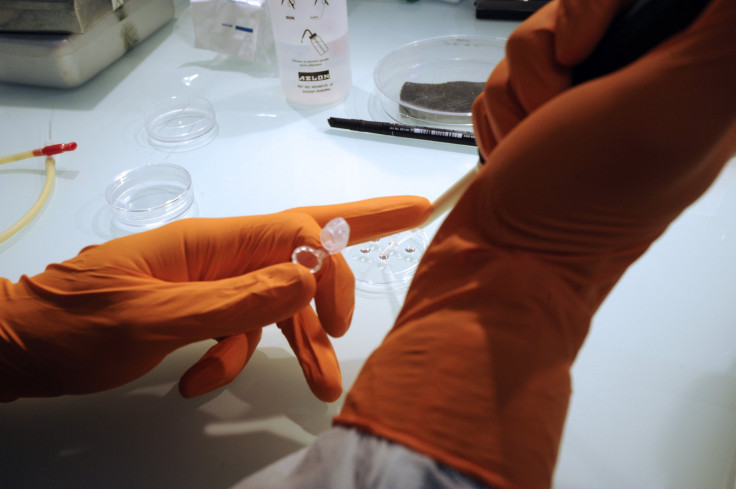Are 'Stem Cell Factories' The Future Of Regenerative Medicine? Scientists Eye Possible Breakthrough [VIDEO]

Scientists have found a synthetic substrate that has ability to produce billions of stem cells, a new study showed. The findings could potentially pave way for creation of "stem cell factories," which can be used in treatment of the heart, liver, and brain.
Researchers at the University of Nottingham in the U.K. developed the cost-effective substrate that allows the growth of stem cells, and can also survive long-term storage. Findings of the study were published in the June issue of Advanced Materials journal.
"The possibilities for regenerative medicine are still being researched in the form of clinical trials," Morgan Alexander, a professor of biomedical surfaces at the University of Nottingham said, in a press release Thursday. "What we are doing here is paving the way for the manufacture of stem cells in large numbers when those therapies are proved to be safe and effective."
Chris Denning, study co-author and a professor of stem cell biology at the University of Nottingham, explained that a person loses about 5 billion cells during a heart attack and in order to replace those cells, doctors need about 10 to 15 billion stem cells as some of the cells do not survive or differentiate into heart cells.
Researchers also said that patients with eye disorders in some countries have already receive stem cell-derived treatments.
"The field of regenerative medicine has snowballed in the last five years and over the coming five years a lot more patients will be receiving stem cell treatments," Denning said. "Clinical trials are still in the very early stages. However, with this kind of product, if we can get it commercialized and validated by the regulators, it could be helping patients in two to three years."
© Copyright IBTimes 2024. All rights reserved.






















